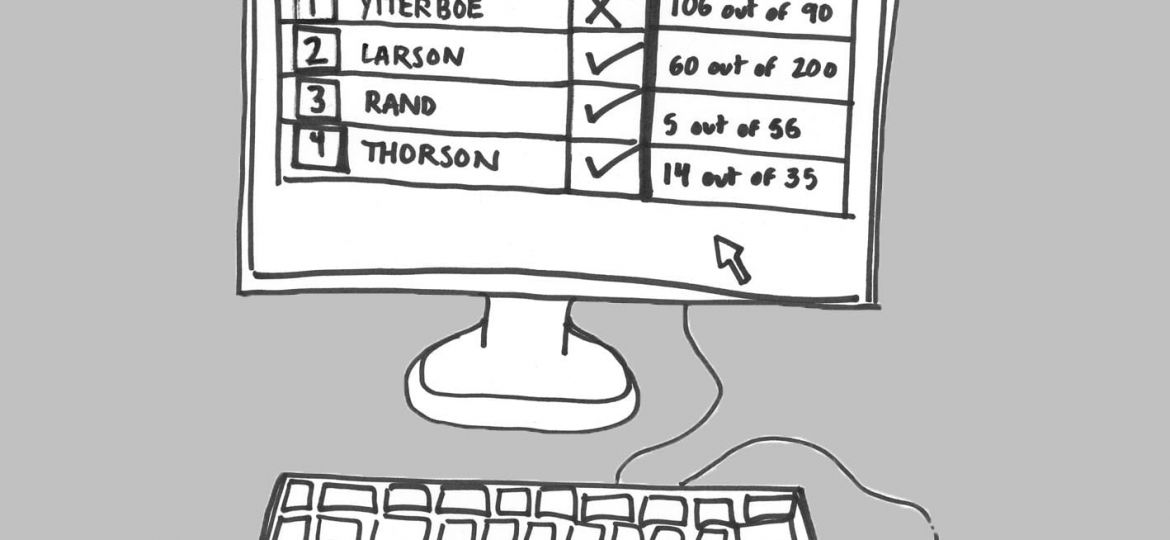
With the post-spring break letdown, midterms, class selection and finalizing summer plans, it is no wonder that Oles dread this season of stress and craziness. When you factor in the room draw process, the entire first half of April becomes unbearable.
No matter how a school conducts room draw, it is bound to be stressful. After all, it is important for students to select the most compatible roommate and the most ideal location. However, St. Olaf’s in-person room draw system makes this process even more stressful, hectic and dramatic than it needs to be.
Think about it: in this age of Internet and interconnectivity, we still rely on a paper system. This paper system necessitates drama. First, we have to wait for little slips of paper with our room draw numbers on them to be placed in our P.O.s. After that, the intricately timed system requires an entire weekend of waiting in tense lines and making on-the-fly adaptations when our first and second-choice plans fall through.
Many colleges have room draw processes similar to our own; believe it or not, it is actually very common to have a completely offline room draw process. Still, other colleges have moved some or all of the rooming process online. Many colleges send students their draw numbers electronically. Others, such as Macalester College, use an online preference and ranking system for their room draw. In this system, students connect online with the friends they hope to live with and then rank their rooming preferences.
An online process like this takes pressure off students. In this system, students are better able to plan out their room rankings. Groups can meet, discuss and fill out their preferences together instead of solely depending on one member of the group to wait in line and select a living space. Sending one representative can result in stressful and compromising situations. If everyone participates in room draw, it is more likely that everyone gets a say in the living situation.
Additionally, an online system is simply less dramatic. There is something about the P.O. placement that conjures up pictures of students stressing around the mailbox area, waiting for their slips to come through. While receiving an email with your draw number is also stressful, at least students do not have to congregate and compare numbers in the same place. Waiting in line to select your room is an even more stressful prospect. An online selection, again, does not necessitate that everyone congregate in one place, watching to see who is successful and who is disappointed.
Many of St. Olaf’s selection processes have already been streamlined. An online room draw process could resemble online class selection. While all Oles know that course registration is complex, we can agree that it gets the job done fairly and efficiently. No one knows anyone else’s placement numbers. Some get into the classes they want; some don’t. It is still stressful, but at least we aren’t all standing around to see who got into a class and who didn’t.
Regardless of the process, room draw is bound to be dramatic. However, St. Olaf could mitigate this stress by switching to a room draw process that isn’t completely offline. All St. Olaf students have access to electronic resources; it is time to start utilizing them for the room draw process. With a new system, St. Olaf could make this time of year a little less stressful for everyone.
Maggie Weiss ’16 weissml@stolaf.edu is from Minnetonka, Minn. She majors in English and political science.
Graphic Credit: CAROLINE WOOD/MANITOU MESSENGER

